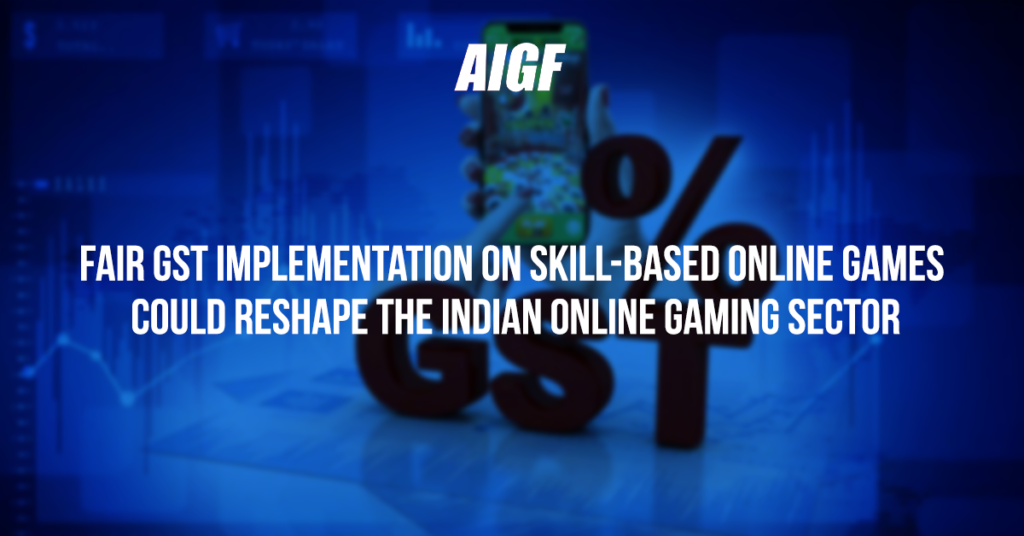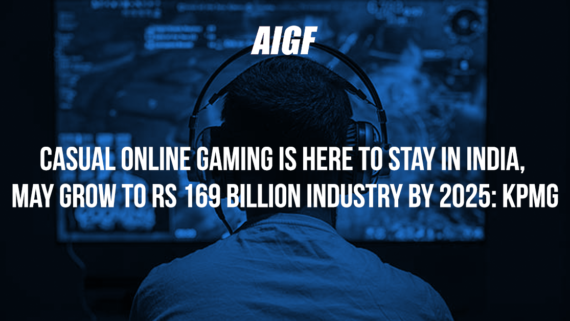To decide if GST is applicable on the complete transaction value, which incorporates the prize money or the net commissions (revenues) that accrue to gaming firms, the GST Council and Ministry of Finance have framed a Group of Ministers (GoM). With that, the GOM is additionally entrusted with coming up with suggestions on the GST rate to be applicable. Nonetheless, the council that was framed last May was dissolved, and another one was formed in February 2022.
Fair GST Implementation On Skill-Based Online Games Could Reshape The Indian Online Gaming Sector
The online gaming industry in India has been thriving for a couple of years with the rise of startups and has seen a lot of positive economic effects. This emerging sector in India has picked up huge speed because of the ‘Digital India’ drive by the Prime Minister, which provides internet admittance to residents at reasonable rates, penetration of the utilization of mobile phones across social and demographic hindrances, and India’s enthusiasm to take on and adjust to the online gaming platforms. Be that as it may, regardless of the support and positive criticism received from the public authorities, the industry anticipates a clear judgment on GST restructuring and rate rationalization on online games.
To decide if GST is applicable on the complete transaction value, which incorporates the prize money or the net commissions (revenues) that accrue to gaming firms, the GST Council and Ministry of Finance have framed a Group of Ministers (GoM). With that, the GOM is additionally entrusted with coming up with suggestions on the GST rate to be applicable. Nonetheless, the council that was framed last May was dissolved, and another one was formed in February 2022.
Since there’s enormous potential in this new sector, there’s an urgent need to take a gander at the GST levied on the industry.
At present, services given by online skill gaming platforms are characterized under service accounting code 998439 of the GST services classification and are subjected to 18% of the Gross Gaming Revenue (GGR) for the service provider, though the games of chance draw in 28% GST.
Furthermore, the Contest Entry Amount (CEA), which normally incorporates a platform fee or GGR, is usually between 5% and 15%, and the Prize Pool, which is in the section of 85%–95%. In many games, the typical ticket size is between Rs. 25 and 35.
In real-money games, players need to pay an entry fee to join a gaming competition, and the aggregate sum collected in this process, less the platform fee, is known as the prize pool money. Various organizations manage various models of holding the prize pool money. Sometimes, platforms could decide to hold the money in a different electronic ledger by third-party service providers, payment gateways, wallets, and so on. This pooled sum is subsequently dispersed among the players as prize money, and the organization procures a rate (5%–15%) on this sum as a platform fee.
Taxing gross gaming revenue at a rate of 15% to 20% is driving worldwide regulated markets, including the United Kingdom, most countries in the European Union, and Nevada and New Jersey in the United States.
In addition, Rule 31A of CGST Rules 2017 (‘Rule 31A’) deals with the valuation of the supply of actionable claims in the case of lottery, wagering, betting, and horse racing, and falls under the rigors of Rule 31A, which applies, as per the said rule, only to activities including “a chance to win in wagering, betting, or horse racing.”
Rule 31A (3) reads as “(3) The value of the supply of actionable claims as the chance to win in wagering, betting, or horse racing in a race club will be 100% of the face value of the bet or the sum paid into the totalisator.”
Since Rule 31A proposes the word “chance” before depicting the activity, the said rule doesn’t have any significant bearing on online games based on skill. Henceforth, this implies
Games of skill are not covered expressly under the current GST system, and the tax authorities here and there disregard the distinction between games of skill and games of chance. This clear difference is basic as in the cases of the lottery, wagering, betting, and horse racing, 100% of the face value of the bet or sum paid into the totalisator is considered for GST.
Other than lottery, wagering, and betting, actionable claims are covered by Entry 6 of Schedule III of the CGST Act 2017. Since prize pool money is an actionable claim, it is thus excluded from the duty of GST.
Henceforth, on those lines, just GGR or the platform fee ought to keep on being considered as the value of supply. Furthermore, assuming that there are different formats or revenue models followed by platforms, for example, entry fees, membership charges, in-game revenue, and so on, GST ought to apply to the sum obtained by the platform for delivering its services.
Before the erudite judgment, the Rajasthan high court, Bombay high court, and the Punjab and Haryana high courts (maintained by the Supreme Court in appeal) quashed state regulations that condemned online games, including skill.
We urge the public authorities to resolve the ambiguities and clarify that Rule 31A isn’t expected to cover games of skill and, along these lines, doesn’t apply to any type of online gaming where the superior skill and technical knowledge of a gamer are prevailing. On the other hand, we suggest the public authorities consider carving out a different rule explicitly for skill-based games where the GST rate applies just on the platform fee, just as in the case of some online platforms providing goods and services.
We suggest that in situations where the gaming organizations’ revenue model incorporates a membership fee, in-game revenues, and so forth, GST ought to be relevant to just the sum received by the platform. Moreover, skill-oriented games ought to be charged at 18% of the platform fee, as higher duty rates can affect the industry’s development.
Any attempt to levy GST on the whole stake value will undoubtedly modify player and compliance behavior and will neither work for the benefit of the gaming industry nor the public authorities. This, therefore, could hamper this flourishing industry’s upward trajectory and could encourage the closure of organizations in the sector. The online gaming industry needs a GST regime that can safeguard and promote the section that houses nearly 900 Indian gaming startups.
Credit: Financial Express











Comments
Comments are closed.